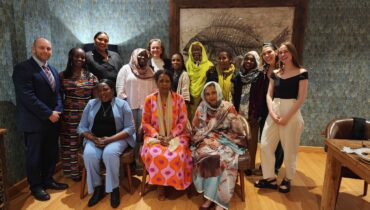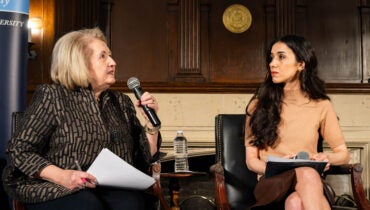Saudi Arabia and gender equality are hardly synonymous. It ranks 141st out of 144 countries in terms of gender equality largely because of discriminatory laws that prevent women from holding a job without their male guardian’s permission or getting a driver’s license. It is thus unsurprising that the decision by the United Nations Economic and Social Council to elect Saudi to the UN Commission on the Status of Women (CSW) on April 22, 2017 created an uproar. While there is rightly concern about allowing Saudi onto the commission tasked with empowering women worldwide, there are also reasons not dismiss the decision out of hand. Saudi’s desire to have a seat on the CSW could represent a real desire on its part to improve its record on women’s rights and could be an opportunity for the global community to put more pressure on the monarchy to adopt more gender equal policies.
When news broke about Saudi’s election, the director of United Nations Watch tweeted “Electing Saudi Arabia to protect women’s rights is like making an arsonist into the town fire chief.” The Belgian Prime Minister issued a public apology for his country’s vote to put the highly conservative monarchy on the commission. The key reason people are so critical of Saudi gaining a seat on the CSW is the country’s guardianship laws. Saudi women must have a male guardian, normally a father or husband, make critical decisions for them. They must obtain permission from the guardian to travel, work or study abroad, receive hospital treatment or an ID card, and marry. Women are treated as minors their entire lives, responsibility for them handed from one male guardian to the next as they move from family home to marriage. Women are chafing under the strict laws. It is estimated that over a thousand women a year “run away” to escape a system that has very limited outlets to hear a woman’s concerns if her guardian is mistreating her. The monarchy has promised twice to do away with the guardianship system but has failed each time to implement meaningful reforms.
What could give us hope that Saudi Arabia’s new seat on the CSW is anything other than a farce? As UN Women said in a statement the country’s interest in occupying a seat is an indication it wants to “play and active role in the work” of promoting gender equality. In this way, Saudi’s campaign to gain a seat is a positive sign for the countless women’s rights activists in the country and provides a chance to further legitimize their cause. The election to the commission has only intensified the spotlight on the kingdom’s discriminatory policies which could motivate it to implement meaningful reforms more quickly. Participating in the commission may also help raise the voices of Saudi NGOs working for gender equality. In future annual CSW meetings these NGOs can submit written statements and apply to testify to the commission on issues in the country. In that sort of setting it will be difficult for the monarchy to ignore the voices calling for reforms and again this could hasten positive changes.
Saudi Arabia has already made some limited reforms, such as the King appointing 30 women to the Shura council, the highest consultative body. Women also earned the right to vote and run in local elections. Saudi Arabia is far from democratic so both of these actions are largely symbolic but do show that the kingdom is slowly liberalizing. The Vision 2030 plan for economic development also includes that goal of increasing women’s labor force participation from 22% to 30%. Today more Saudi women are enrolled higher education than men. Considering this slow but positive pattern of taking small steps for gender equality, Saudi Arabia’s seat on the CSW could be viewed in a positive light.
It is too soon to tell if Saudi Arabia’s presence on the commission signals a new, legitimate commitment to gender equality or another UN farce, such as how major abusers of human rights–Burundi, Congo, Cuba, Egypt, and again Saudi Arabia–are all members of the U.N. Human Rights Council. For the election to be redeemed, other CSW members must loudly and openly voice the need for reforms in Saudi, particularly the dismantling of the guardianship system. Saudi women’s rights NGOs should be invited to speak at the next meeting of the commission to empower their calls for change. While this episode could be an example of a UN gaffe, it could also be an opportunity for the UN to prove that it can effectively encourage members to make domestic changes that bring a country in line with global norms.
About the Author
Katherine Butler-Dines is a research assistant on the Women & Economy Project. She is a senior in the School of Foreign Service at Georgetown University. She is majoring in Regional and Comparative Studies with a focus on the Middle East and North Africa, and is also pursuing a certificate in Religion, Ethics and World Affairs through the Berkley Center. She has studied abroad in both Jordan and Morocco and is working toward fluency in Arabic.

